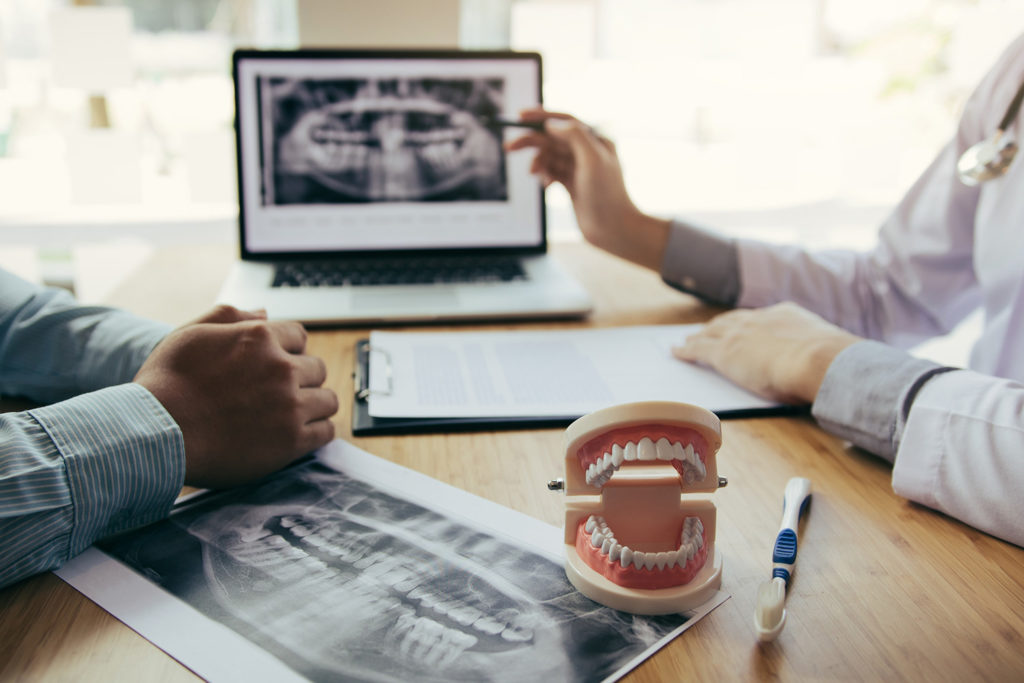Emergency Dentistry
Dentistry can’t always be scheduled, sometimes the need for emergency dentistry services arise. When they do, we will work to restore your smile as quickly as possible so that you can put the pain and the injury behind you.
Emergency Dentistry in Winter Springs
Dental issues and accidents can happen at any time. Sometimes they require immediate treatment, and when that is the case, we are here to assist. If you are searching for emergency dentistry in Winter Springs, Oviedo, Casselberry, or Orlando, we are your solution.
Our experienced and knowledgeable team knows that a dental emergency is never easy, but we are here to get you comfortable as quickly as possible. We offer affordable emergency dental care that will get you back to everyday life as soon as possible. We reserve space in our schedule to accommodate your dental emergency the same day you notify us, and we will work diligently to treat you quickly and comfortably.
If you are unable to get a hold of us right away, please leave a message and we will get back to you as soon as possible. If you are in severe pain or experiencing significant bleeding and can’t wait, we recommend that you go to the emergency room right away.
Call Collins Dental
-
How much does an emergency dental visit cost?
We aim to provide affordable, quality dental care for our patients in Winter Springs, FL. Our price for an emergency dental exam is listed below. Out of pocket cost for any procedure depends on your insurance coverage at the time of the procedure.
- Emergency Exam: $0-98
Certain PPO plans may cover 100%.
See All Office Fees -
What is a dental emergency?
There are several types of dental emergencies. Dental emergencies can consist of a sudden and severe toothache, an accident that chips or cracks a tooth, a damaged or loose restoration or a lost or damaged tooth. About 22 percent of people have experienced dental or oral pain in the last six months, to know if your situation is an emergency, ask yourself the following questions:
- Are you in severe pain or experiencing severe swelling?
- Do you have a painful toothache that will not subside?
- Do you have a loose or knocked-out tooth?
- Do you have swelling in your cheeks or face in combination with a toothache?
- Are you experiencing extreme tooth sensitivity?
- Are you bleeding from the mouth that will not stop?
- Is your jaw injured?
In general, any dental problem that needs immediate treatment to stop bleeding, alleviate severe pain, or save a tooth is considered an emergency. This consideration also applies to severe infections that can be life-threatening and constitute contacting your dental office.
-
What is not a dental emergency?
If the problem can be taken care of yourself for a few days without seeing your dentists, it likely isn’t a dental emergency. For example, a chipped or cracked tooth is only an emergency if the fracture is painful or has left you with trauma inside your mouth, Or, if you have lost a tooth or filling, you can wait a few days to see your dentist.
-
What’s the best way to handle a dental emergency?
The best thing to do in a dental emergency is to contact your dentist, unless it is extremely severe then you should go to the emergency room.
Depending on the dental emergency you are experiencing, there may be some things you can do at home to ease your pain and help the situation. Some efforts include:
- Dissolve a teaspoon of salt into a mug of warm water and use it as a mouthwash
- If your tooth is knocked out, place it in a glass of milk until you can see your dentist
- Try flossing to eliminate any gum pressure
- Use a cold compress on the swelling or painful area
- Swish with Hydrogen Peroxide to kill bacteria
- Take over-the-counter pain medication to alleviate pain
Questions About Emergency Dentistry?
If you have more questions about emergency dental care, please contact our office and we will be happy to discuss further.
